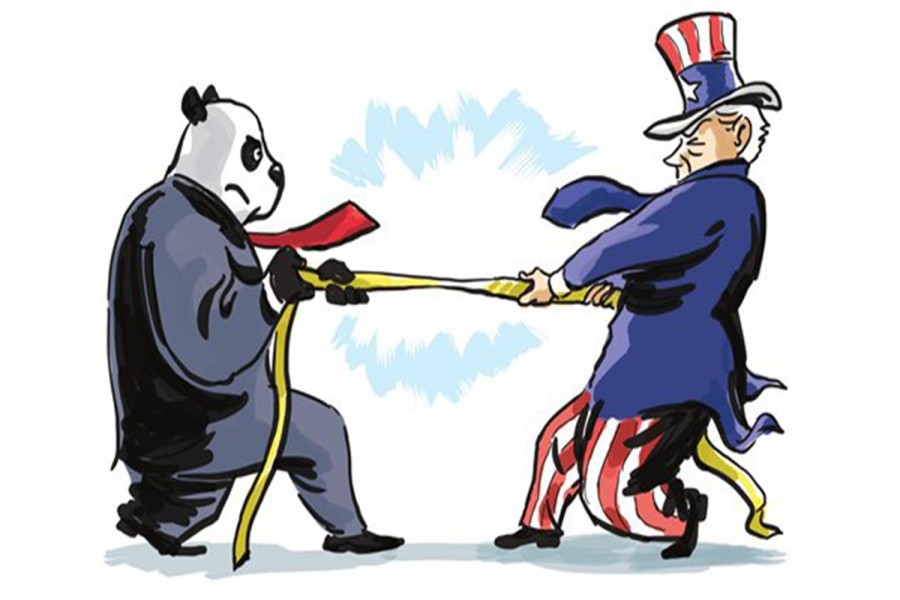Voices in China and the US are talking past each other - with hot language of decoupling and divorce.
Thomas L. Friedman, opinion columnist for The New York Times, recently suggested that, "the real story is that the US and China are heading for a divorce" and that the Chinese should be asking themselves, "Who in China lost America."
The truth is, for such two major powers as China and the US, neither divorce nor decoupling would be easy. Not with such strong bilateral relations deeply embedded in global and regional cooperation in politics, economics, and security.
The past couple of years have seen strategic competition between Beijing and Washington escalate rapidly. Amid the impact of the pandemic, the bilateral relationship will likely keep going down.
Given the blowback of the current coronavirus crisis, China-US relations are continuing to see additional strains.
The word "decouple" has been heatedly debated recently. It means the split of the industrial chain between China and the US. It further entails reducing economic, high-tech, and people-to-people exchanges - to sever mutual reliance.
Some Americans believe China has taken advantage of relations with the US by obtaining both markets and technologies from the latter. As China gradually becomes a strategic competitor of the US, Washington cannot bear it anymore. It has been asking China to make up for US losses and piling pressure on China by threatening to decouple. This has been particularly evident in the high-tech sector.
Compared with the decoupling theory, the argument about the divorce between Beijing and Washington is more worrying. It sounds as if the foundation of China-US relations has been shaken. It suggests that the two countries will gradually fall into a new cold war. They could even face the possibility of falling into the Thucydides Trap.
As Friedman articulated in his article, the divorce papers will say the cause was "irreconcilable differences" and the reason is that, "China badly overreached and America badly underperformed." He added, "if China was to buy a few more beans and Boeings from America, that would not fix Beijing's problems," suggesting China has already lost the US.
This reflects the arrogant mind-sets of certain politicians and people in the US. They improperly attribute China's development to the US' favors and are asking China for a wide range of rewards. These Americans ignore the fact that the US has also hugely benefited from its cooperation with China.
It is time for Beijing and Washington to reconsider their problems and prospects of their relationship. They should jointly explore a rational solution to fix their ties. Compared with decoupling and divorce, separation might be a better choice.
Due to the transfer of power and the difference in political systems, the strategic competition between the two is inevitable. Yet neither of them hopes to see their ties continue to worsen.
Amid the election season, several factors have influenced US President Donald Trump's China policy. His administration is scapegoating China for their mishandling of COVID-19. The US government is attempting to limit the economic damage from the disease, and Trump is playing the blame China card to win more votes. Against this backdrop, bilateral ties are likely to be further damaged.
Due to the current strained competition and irrational anti-China voices in the US, it is difficult to put China-US ties back on a positive track.
It can be argued that China and the US have actually entered a phase of separation, yet without formal divorce. It is necessary to take the time to think about both sides' gains and losses at this time in a cool-headed manner.
Solving puzzles in China-US ties requires new visions and new ideas. Neither decoupling nor divorce is rational choice. This course of action will lead to a lose-lose scenarios.
It is expected that after the hustle and bustle of the election year in the US, Washington will have a more rational and mature perspective toward China - and not create new problems.
Both the decoupling or divorce theories, after all, seem like China and the US are playing game of chicken to see which side will blink first. This is childish and naive.
The author is secretary-general of the International Security Study Center at China Foreign Affairs University. [email protected]


